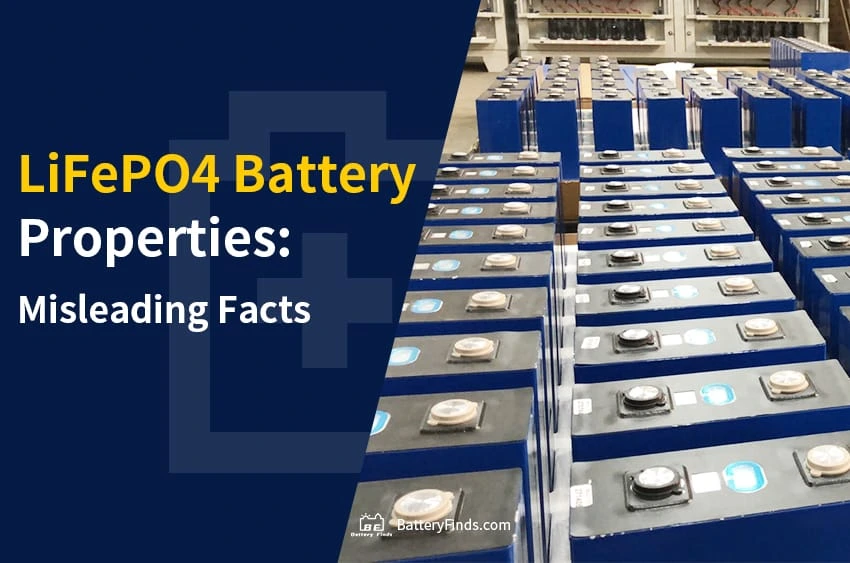Due to being one of the most resilient and long-lasting battery chemistries available, LiFePO4 chemistry lithium cells have been popular for a variety of applications in recent years. If properly tended for, they can endure ten years or longer. But there is some information about lithium-ion phosphate properties(LiFePO4), that people always mix it up with lead-acid batteries.
- There’s no need to ” Break in ” in lithium batteries, it’s the contrary, during the first few cycles, overestimated capacity is more common than underrated capacity.
The standard charge to LiFePO4 is 3.65V per cell, and it never discharges less than 2V, according to the datasheet specifications. Charging at 4.2V is not recommended for LiFePO4 chemistry, as it may cause electrolyte degradation. Overcharging and over-discharging are the most common causes of LiFePO4 cell premature failure. Even a particular act can result in irreparable damage to the cell, voiding the warranty. To ensure that no cell in your pack goes outside its nominal working voltage range, you’ll need a battery protection system.
Peukert’s effect doesn’t apply to LiFePO4 batteries, only to lead-acid batteries.
Current rate (C) for LFP is 0.2 C, not 20 or 30 hours. 20~30 hours current rate is for lead acid-flooded acid batteries. in fact, some new LiFePO4 batteries can be tested on 0.8C and still pull full capacity.
If you prevent particularly deep discharges with lithium batteries, the cell life will be extended. Except in extreme circumstances, we recommend sticking to a maximum DoD of 70~80 percent, which is totally true. In fact, some new batteries reach 80~90% DoD.
Swelling will only occur if a cell has been over-discharged or in some cases overcharged. Swelling does not necessarily mean the cell is no longer usable though it will likely lose some capacity as a result. (Learn more: Swollen LiFePO4 Batteries? How To Prevent? )
Finally, Lithium LiFePO4 batteries have high specific energy and an optimal energy density in both volume and weight, indicating that they can deliver the required power when needed. Additionally, LiFePO4 batteries have improved safety features and do not burst under harsh conditions. We hope these facts had corrected your perspective in advantage for LiFePO4 batteries. If you have further concerns or questions, you are more than welcome to contact our professional team.

